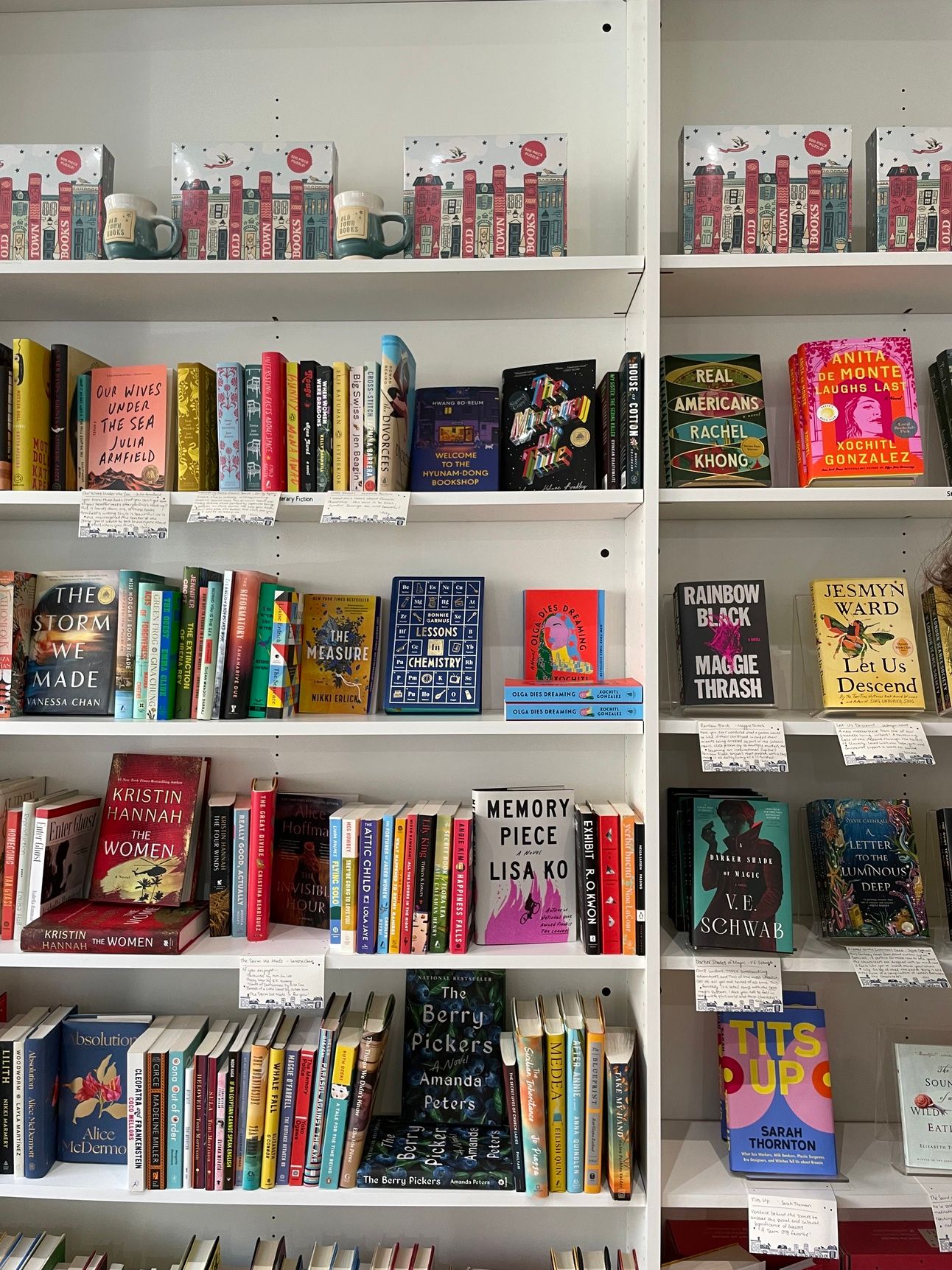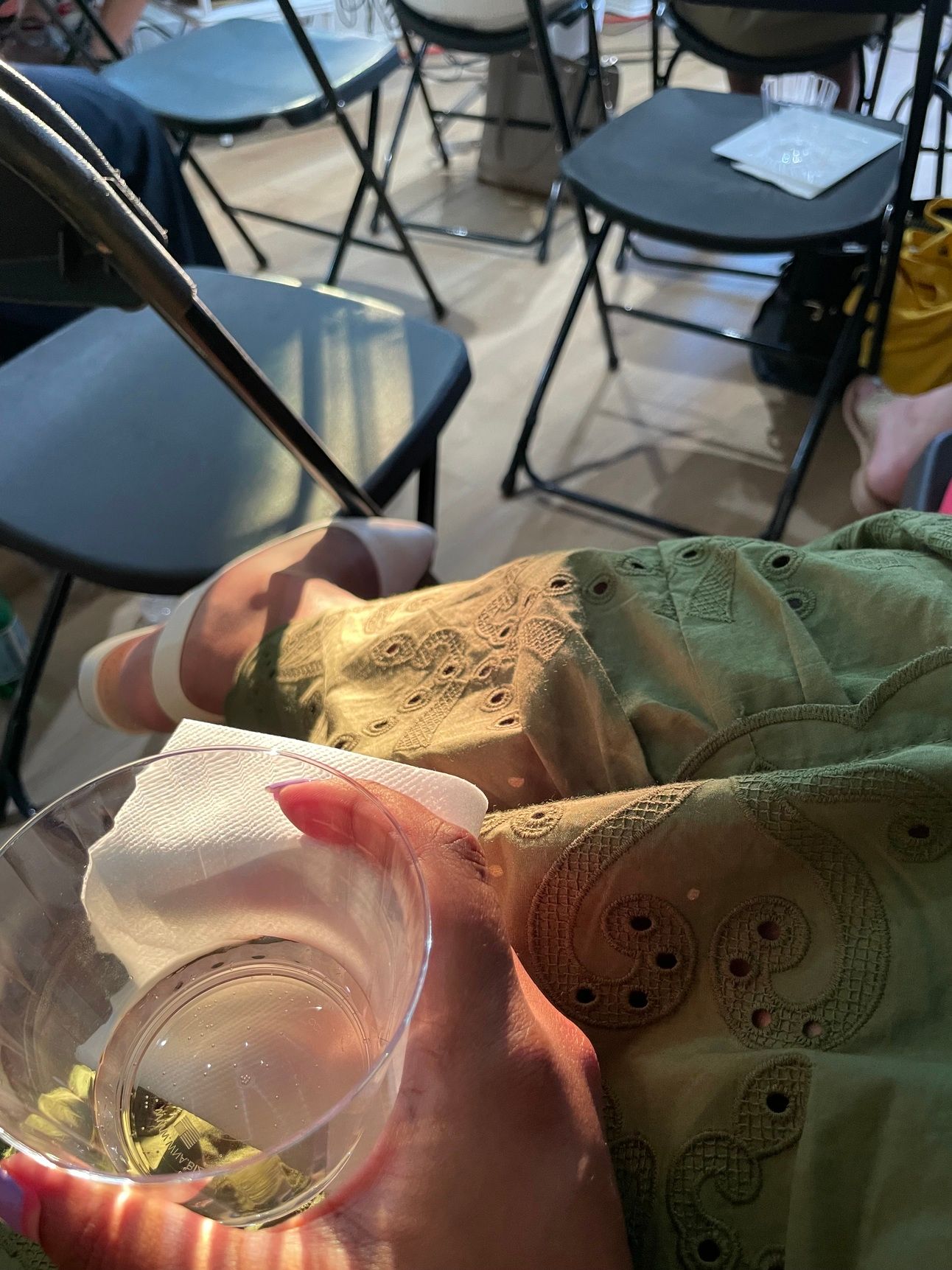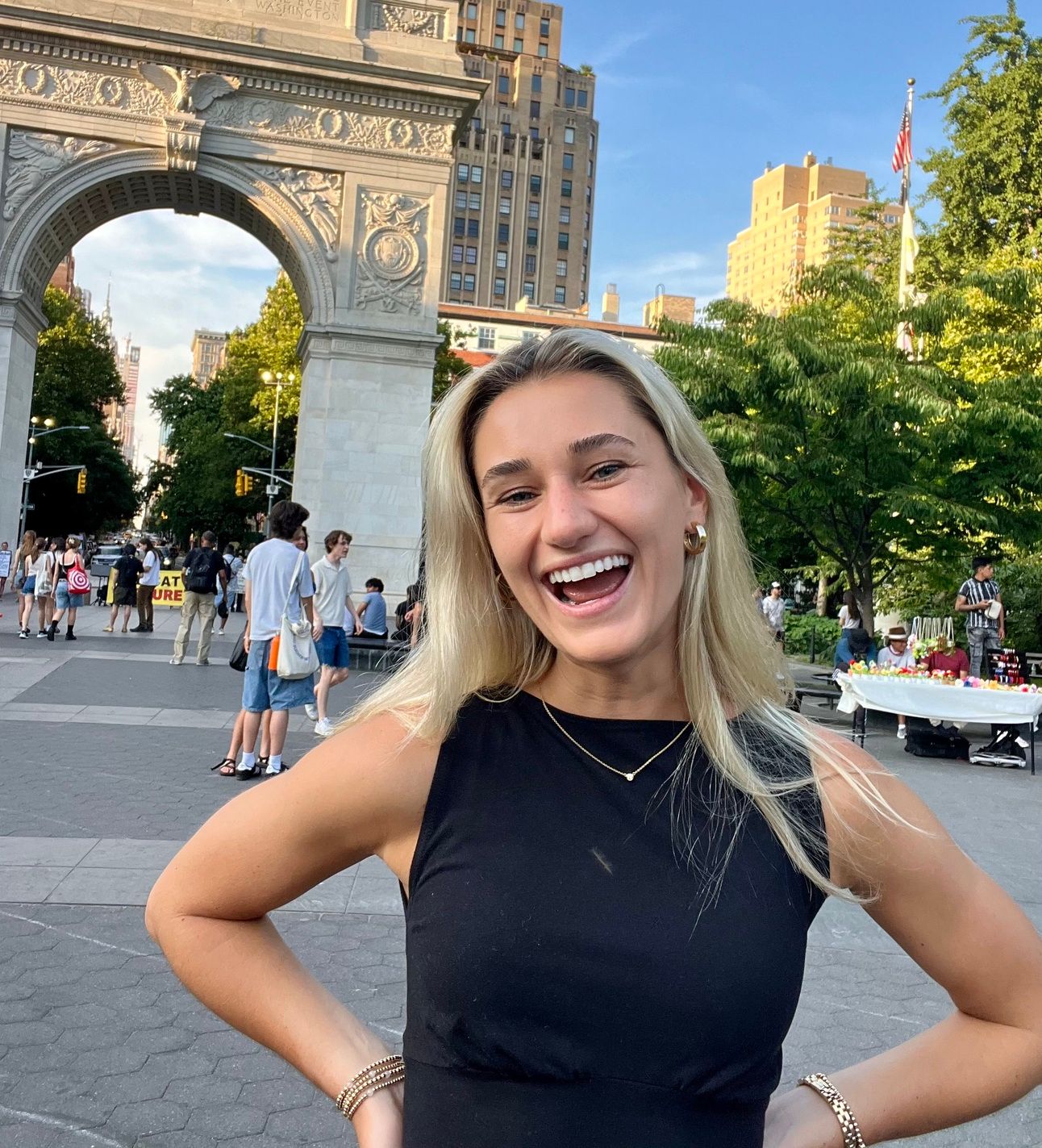- lazy girl capital
- Posts
- The Only Time It's Okay to Girl Math With Emma Pratt
The Only Time It's Okay to Girl Math With Emma Pratt
@kelscruss they always leave erykah badu out!! #fyp #fashion #bohochic #vouge
“Fashion is a cultural thermometer.” Okay, we shouldn’t start judging everyone on their appearance, but can the bag you wear really give away your political affiliation? Maybe, but I think the point most of us miss is who and what is is missing from the stories that shape history. The real statements are made on the runway not in all these random trends and aesthetics on social media. What else do you think is a good cultural thermometer?
In other news, BILT might be on the verge of its downfall (kinda glad I didn’t get on this bandwagon because they’re definitely going to change the rewards system on this card now). Speaking of bandwagons to avoid, I’m continuing my boycott of running clubs. Shout out health and consistency, but there’s nothing you can do to convince me to join one (especially since my PR won’t even come close to all the cute boys).
Also, can we all just take a moment for the SKIMS collab with Pen (aka Nicola Coughlan) and the Van Leeeuwen Ice Cream collab with Sabrina Carpenter. Both of them ATE. I just need a dating app to collab with Karolina Geits and maybe I’ll feel like they have potential or further prove that we need to be as forward as Karolina to find our life partners.
My curated and messy content dump for this week:
📱nicotine is being branded as a productivity tool
💵 angel investing 101
🤫 a real life gossip girl but for influencers?!
🗺️ how to go on more side quests
👠 stay cool and fashionable as a corporate girlie this summer
📺️ Day in the life of a TV/film composer
As always, here are some ways you can make my day:
🤝 intros to your besties in DC and LA
😇 intros to your fave female angels in their 20s and 30s (willing to get naked about their personal finances)
LA to NYC - passing the mic to an angel (literally and figuratively). Emma and I got introduced by the lovely Larina Chen - Mehta, who’s invested in cult fave brands like DUEX, Kin Euphorics, and Halfdays. To be completely transparent, angel investing feels very gatekeepy and is probably the least lucrative side hustle to maintain. However, it’s probably one of the best ways to test and refine an investment thesis while also networking with some pretty dope investors. Emma and her co-founders of Girl Math Capital are on a mission to help educate more early-career women about it and hopefully get them on track to write their first couple angel checks!
What makes you you?
Hi!!👋 My name is Emma, and I’m an NYC-based 26-year-old with a curiosity for angel investing, particularly within the consumer ecosystem. I graduated from Vanderbilt in 2020 and currently work at Uber on the M&A Integration team. In my free time, I love running the West Side Highway and Central Park, reading, trying new workout classes, and exploring the city!
What was your first introduction to angel investing?
My first introduction to angel investing was in early 2023 when I signed up for AngelList. At that point, I was almost 3 years post grad, and I wanted to start investing beyond some of the more typical asset classes and instead make early bets on companies whose mission and growth I was really passionate about. I perused the platform for a few months in lurk & learn mode (coined by Cheryl Kellond at Play Money 🙂) before I wrote my first check to suncare brand Vacation Inc (more on that below!).
What was your first angel investment? How much did you invest and what was the process like? What was the biggest driver for making this investment?
My first angel investment was Vacation Inc, a “leisure-enhancing” suncare brand made of clean, reef-friendly ingredients on a mission to make sunscreen fun. Besides being an effective yet approachable brand in an industry dominated by medical-grade and drugstore names, what attracted me to Vacation was the personal connection they make with their audience at every single point on the consumer journey. I was thrilled when I was presented with the opportunity to invest personally through my Girl Math co-founder Porter Geer, who connected me with Maya Bakhai and the syndicate she was pulling together on AngelList. After I indicated interest, she gave me access to their deck and data room, and I went through a series of diligence questions I developed for my angel investment process. When I decided to commit, I wrote my first check for $1,700. One misconception I had before making my first investment was that being an angel necessitates setting aside tens of thousands of dollars each year. In reality, small checks are still valuable checks, and I’m beyond grateful to the founders who have allowed me to take part in their journey regardless of my check size.
How was Girl Math Capital born? What is your long-term goal/vision for it?
Serena Ainslie, Porter Geer, and I founded Girl Math Capital from the desire to create a judgment-free space for early-career women to learn about and gain experience with alternative investing. Our inaugural cohort of 14 women meets on a bi-weekly basis to share deal flow and learn from distinguished investors and founders across industries. Our long-term vision is to expand into a larger-scale community who can invest in deals through a formal syndicate, Girl Math Capital LLC, while maintaining an intimate cohort who is able to learn about and launch their alternative investing journey together. If you’re interested in being a part of Girl Math, either as a guest speaker or a future member, please feel free to reach out to [email protected]!
How do you stay up to date on trends and market insights?
I’m a religious consumer of Axios Pro Rata for M&A news and the Morning Brew Daily podcast for business news at large. Within the consumer ecosystem, I love The Consumer VC, Beauty Matter, Forerunner’s The CQ, and the podcast Subscribing to Wellness!
What are you looking for in your next angel investment? (i.e., what are you prioritizing the most when you’re doing your own diligence on a company and founder?)
The most important question I ask myself when making an investment is “What problem is this company looking to solve for, and how are they doing so in a way that’s new and different?” The answer to this question helps me identify the brand’s value to the consumer and its competitive advantage. I also look for a passionate management team with industry expertise, a large and growing customer base, a reliable monetization model, and low business risk. I’m hoping that my next investment can go towards female health or pet care, two consumer subcategories close to my heart that I have yet to invest in!
In the simplest terms, M&A is the acquisition of one company by another or the combination of two businesses of equal size. At Uber, we typically acquire a target to increase our scale or geographic scope, enter into a new line of business, or gain a unique technological or strategic advantage. The M&A Integration team is responsible for supporting diligence and deal execution, developing the integration strategy, and driving coordination between functional teams to plan and implement this strategy. One of the biggest learnings I’ve applied from this role into angel investing is the importance of building for something bigger. In order to become a household name, a founder should think early and often about creating a foundation for their product or service that has the potential to scale exponentially. This takeaway has become a key criteria of my investment evaluation.
What is your current hot take?
I'm not alone in this line of thinking, but I strongly believe that angel investing will become just as accessible as investing in the stock market. Nascent platforms like Cherub and Play Money, along with tools like Sydecar, are breaking down the barriers to entry, making it easier than ever for accredited investors to discover, connect with, and invest in startups.
What’s something very few people know about you?
When I’m older and feel fulfilled with my career in the corporate world, I’d like to become a therapist!
What do you think people should invest more time into?
Getting from place to place without looking at your phone or listening to music. This habit forces you to get comfortable with being alone with yourself, and that's when some of our best reflection happens.

Do you really need a public facing brand as a founder, investor, and/or operator to really “make it”?
 |  |
I recently attended Hitha Palepu’s Women Who Made an Impact event here in DC. Emily Amick and Abra Belke were the panelists, both of which were part of the OG political creator/blogger crowd. I’m not gonna lie I didn’t make any friends at this event, but I did leave feeling lighter and more inspired.
More importantly, it made me realize how an individual who’s prioritizing IRL connection will always have a legacy than an individual who perpetually lives online building para social relationships. So, do we as founders, investors, and/or operators really need a brand on not just one platform but multiple? Does it really truly matter unless you own a CPG/consumer brand? Should our identities/personalities really be monetized?
I don’t know. From personal experience, I think my presence online has helped me grow my network, but it definitely isn’t why I am where I am today. And if there’s anything I’ve learned over the past couple years, it’s that the most compelling people in this space spend 80-90% putting in the work and use the other 20% to dabble into brand building. I think the goal should be for all of us to known for our craft. As a founder, how well can you execute on the problem you’re solving. As an investor, what are the steps you’re taking to build a formidable track record. As an operator, what are projects you’ve worked on that are exponential revenue drivers.
Call me harsh and unreasonable, but as a young person I don’t believe in balance and the idea of doing enough. I’m tired of being told as a woman that I’m too ambitious, that I can’t do it all (yes, I know it doesn’t happen all at once), or that I’m part of the ‘girl economy.’ I’ll be sharing more on this topic in future issues, but till then I recommend reading Samhita Mukhopadhyay’s recent interview in Teen Vogue. Let me know what your take is on this 17th rendition of the ‘girlboss’ narrative!
Wanna be besties?
Email me at [email protected]
Follow me on Linkedln
Follow me on Twitter
Follow me on Instagram

